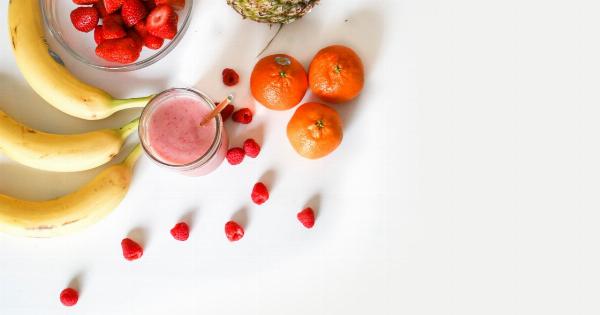Throughout pregnancy, it is crucial for expectant mothers to pay attention to their nutrition in order to ensure the healthy growth and development of their unborn child.
In addition to macronutrients like carbohydrates, proteins, and fats, several micronutrients play a vital role in supporting optimal fetal development. One essential trace element that pregnant women should be aware of is iron. In this article, we will explore why iron is crucial during pregnancy and the importance of maintaining adequate iron levels.
The Importance of Iron
Iron is an essential mineral required for the production of hemoglobin, a protein in red blood cells that carries oxygen to different parts of the body.
During pregnancy, the body undergoes significant changes, and the demand for oxygen and nutrients increases to support the growing baby. As a result, the need for iron also rises, making it vital for pregnant women to ensure they consume enough iron-rich foods or take supplements if necessary.
Preventing Iron Deficiency Anemia
Iron deficiency anemia is a condition characterized by a lack of healthy red blood cells due to insufficient iron levels. This condition can negatively impact both the mother and the developing baby.
Iron deficiency anemia during pregnancy has been associated with preterm birth, low birth weight, and developmental delays in children. Therefore, it is crucial for pregnant women to know the signs of iron deficiency anemia and take necessary steps to prevent it.
Symptoms of Iron Deficiency
Recognizing the symptoms of iron deficiency is essential for timely intervention. Some common signs of iron deficiency include:.
- Fatigue and weakness
- Shortness of breath
- Pale skin
- Irregular heartbeat
- Dizziness
- Cravings for non-food items (pica)
If you experience any of these symptoms during pregnancy, it is important to consult with your healthcare provider, who can conduct tests to check your iron levels and recommend appropriate measures.
Iron-Rich Foods to Include
To ensure an adequate intake of iron, pregnant women should incorporate a variety of iron-rich foods into their diet. Some examples of iron-rich foods include:.
- Lean red meat
- Poultry
- Seafood
- Eggs
- Legumes (beans, lentils, chickpeas)
- Green leafy vegetables (spinach, kale)
- Fortified cereals and bread
- Nuts and seeds
In addition to consuming these foods, pairing them with a source of vitamin C, such as citrus fruits or bell peppers, can enhance iron absorption.
Iron Supplements
In some cases, dietary intake alone may not be sufficient to meet the increased iron requirements during pregnancy. In such instances, healthcare providers might recommend iron supplements.
It is essential to consult with a healthcare professional before starting any supplements, as excessive iron intake can also have adverse effects.
Best Practices for Iron Absorption
While it is important to consume iron-rich foods or supplements, certain factors can affect iron absorption in the body. Here are some best practices to enhance iron absorption:.
- Consume iron-rich foods with vitamin C sources
- Avoid consuming tea or coffee with meals, as they can hinder iron absorption
- Include foods high in folate and vitamin B12 to support healthy red blood cell formation
- Space out calcium-rich foods and iron-rich foods, as calcium can inhibit iron absorption
- Discuss any other medications or supplements with your healthcare provider, as they might interfere with iron absorption
Risks of Excessive Iron Intake
While it is crucial to maintain adequate iron levels, excessive iron intake can also pose risks.
Pregnant women should avoid self-supplementation without medical guidance, as excess iron intake can cause constipation, nausea, vomiting, and other adverse effects. It is important to follow healthcare provider recommendations and undergo regular check-ups to monitor iron levels.
Conclusion
Iron plays a vital role in supporting the healthy development of the fetus during pregnancy. From preventing iron deficiency anemia to ensuring optimal oxygen delivery, maintaining adequate iron levels is essential.
Pregnant women should be aware of iron-rich foods, the signs of iron deficiency, and the importance of seeking medical advice for proper iron supplementation if necessary. By prioritizing iron intake, expectant mothers can contribute to the overall well-being and growth of their baby.































